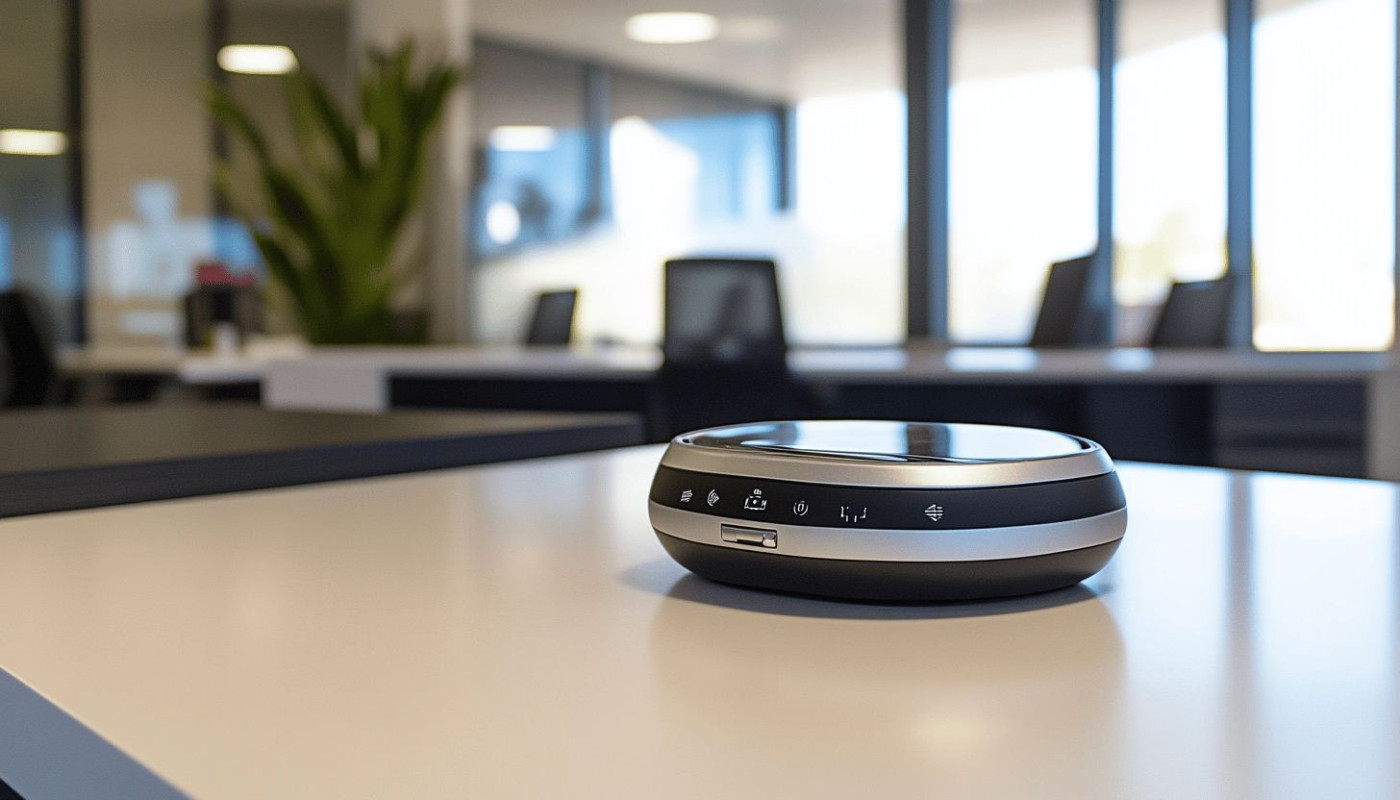Table of contents
In an era where environmental concerns are at an all-time high, the emergence of eco-friendly tech gadgets offers a beacon of hope for a sustainable future. With innovations that promise to reduce carbon footprints, conserve resources, and foster a more harmonious relationship with nature, these advancements are capturing the attention of environmentally conscious individuals and industries alike. As technology marches forward, it brings with it an array of gadgets designed not only to enhance our lives but to protect the planet we call home. From solar-powered devices to biodegradable materials, the ingenuity behind these creations is a testament to the possibility of a greener tomorrow. This exploration into the latest eco-friendly gadgets will unveil the strides being made in this dynamic field and the potential they hold for shaping a more sustainable lifestyle. Each paragraph that follows dives into a different facet of this burgeoning sector, inviting readers to discover how innovation and environmentalism intertwine in the gadgets of today and tomorrow.
Renewable Energy Powered Devices
As the world pivots towards sustainability, devices powered by renewable energy are at the forefront of an eco-conscious revolution. By harnessing sources like solar, wind, and kinetic energy, these tech gadgets offer a plethora of advantages, not least of which is their reduced reliance on fossil fuels. The incorporation of renewable energy technology in everyday devices significantly decreases greenhouse gas emissions, combatting climate change. With advancements in photovoltaic cells, solar-powered gadgets have seen remarkable improvements in both energy efficiency and storage capabilities, allowing them to capture more sunlight and convert it into usable energy more effectively than ever before.
Sustainable tech is rapidly progressing, making these eco-friendly solutions more accessible to the average consumer. Innovations in design and engineering have led to user-friendly interfaces and increased portability, ensuring that choosing the sustainable option is no longer a compromise on convenience. This shift towards renewable energy technology is not only a win for the environment but also for innovation in the tech industry. As these devices become integral to daily life, they play a vital role in the global effort for greenhouse gas reduction and the promotion of a cleaner, greener future.
Biodegradable and Recycled Materials
The integration of biodegradable electronics and recycled materials into the fabrication of tech gadgets represents a significant stride towards mitigating the impact of electronic waste. These innovations are pivotal in fostering a circular economy where materials are reused, recycled, or composted, thus reducing the amount of waste ending up in landfills. Biodegradable materials are typically sourced from natural fibers or bio-based polymers, which can decompose naturally over time. The environmental benefits of utilizing such materials are substantial, as they offer a reduction in toxic waste and lower carbon footprint during production and disposal.
Despite the substantial environmental advantages, there are challenges in the adoption of biodegradable and recycled materials in mainstream electronics. One of the primary hurdles is ensuring that these materials meet the durability and performance standards consumers expect from their gadgets. Sustainable materials innovation seeks to confront these challenges by enhancing the quality and versatility of eco-friendly materials. Recent trends show a growing commitment in the tech industry to increase the lifespan of products through improved design and by using materials that can withstand the test of time.
At the conclusion of a product's useful life, the potential for recycling the components is a vital consideration. Life cycle assessment (LCA) plays a key role in this process, providing a comprehensive analysis of the environmental impacts of products from cradle to grave. LCA helps in identifying opportunities for reducing emissions and waste at each stage of the product life cycle, thus informing the development of gadgets that are not only more sustainable but also easier to recycle. An expert like a materials scientist or an environmental engineer would be able to provide a deeper insight into how biodegradable and recycled materials are revolutionizing the tech industry, simultaneously advancing environmental goals and paving the way for a future with significantly reduced electronic waste.
Energy-Efficient Appliances and Gadgets
Recent advancements in the realm of appliance and gadget design have made significant strides towards energy efficiency. These improvements are not just incremental; they represent a transformative approach to how we consume energy in our homes and offices. By integrating cutting-edge technologies, manufacturers have been able to create energy-efficient gadgets that not only perform their tasks effectively but do so with a fraction of the energy input required by their predecessors. This shift towards efficiency has led to considerable cost savings for consumers and, more broadly, a reduction in the collective environmental footprint associated with energy use.
Smart technology stands at the forefront of this revolution. Devices equipped with intelligent sensors and learning algorithms can optimize their operation based on usage patterns and environmental conditions, thereby maximizing energy efficiency without sacrificing performance. This smart functionality also allows for remote management, enabling users to control their appliances and gadgets even when they are away, ensuring that energy is not wasted.
In choosing eco-friendly gadgets, it is pivotal to look for eco-friendly certifications that attest to the product's energy efficiency. Among such credentials, the Energy Star certification is a technical term widely recognized as a mark of superior energy performance. Products that have earned this certification have been rigorously tested and verified to meet strict energy efficiency criteria set by the government. As a result, these products offer a reliable way for consumers to identify and select appliances that will have a positive impact on their wallets and the planet.
The collective efforts of product designers who specialize in energy efficiency and environmental consultants advocating for sustainable living have been instrumental in pushing the market towards greener solutions. With their expertise, they continue to expand the possibilities of what can be achieved in reducing energy consumption and fostering a more sustainable future.
Water Conservation Technologies
Amid the growing concern for our planet's sustainability, water conservation has become a focal point for innovation. Notably, the development of water-saving gadgets has seen a surge, integrating eco-friendly products into our daily routines in an effort to promote sustainable water use. In both personal appliances and industrial machinery, these technologies now play a pivotal role in diminishing water usage reduction without sacrificing performance.
Advances such as low-flow technology have revolutionized fixtures like showerheads and faucets, delivering the same level of utility while using a fraction of the water traditionally required. The significance of these advancements cannot be overstated, as they offer a dual benefit: reducing household utility bills and contributing to the broader initiative of water conservation. As we face the realities of a finite supply of fresh water, turning to innovative solutions and adopting eco-friendly products becomes not just beneficial but indispensable for the health of our environment.
Recent breakthroughs in smart irrigation systems, for instance, empower users to manage water use meticulously, preventing wasteful practices and fostering green habitats. By embracing these advancements, each individual can play a part in a collective movement towards a more sustainable future. Experts in water conservation and environmental activism continue to advocate for the proliferation of these technologies, citing their effectiveness in the mission to conserve one of Earth's most precious resources.
Advancements in Battery Technology
The realm of battery technology is witnessing a monumental shift towards environmental sustainability, with recent advancements focusing on creating eco-friendly batteries that promise to revolutionize the way we store and use energy. In the forefront of this movement are lithium-ion batteries, which now boast enhanced efficiency and significantly longer lifespans. Not only does this progress extend the usability of electronic gadgets, but it also plays a pivotal role in diminishing the environmental impact of these devices. By employing materials that are less detrimental to the ecosystem, researchers are actively reducing the ecological footprint of battery production and usage.
Furthermore, the evolution of sustainable energy storage solutions is a key factor in propelling the adoption of renewable energy sources. With the ability to store solar, wind, and other forms of clean energy more effectively, these advanced batteries are a cornerstone in the transition towards a greener grid. Looking towards the future, the trajectory of battery technology is set to continue its green ascent. Innovators in the field are exploring groundbreaking approaches, including solid-state batteries and recycling methods, to further mitigate harmful waste and enhance energy storage capacity. The influence of these advancements is significant, as they not only contribute to environmental conservation but also encourage a wider embrace of renewable energy systems worldwide.
Similar articles










